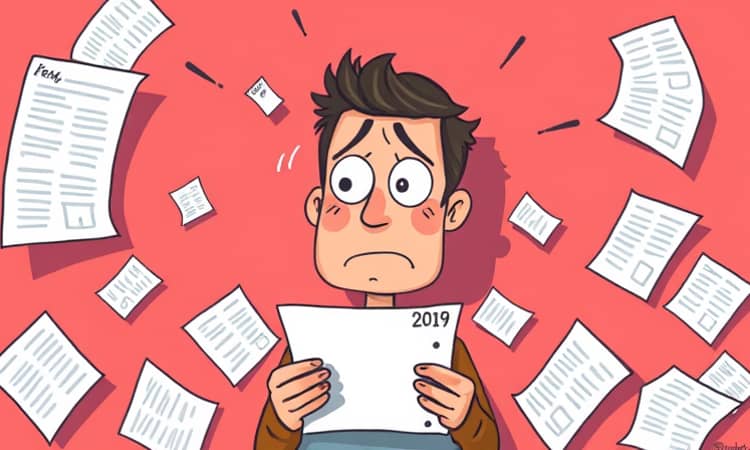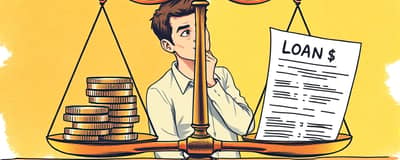Borrowing money can feel like a lifeline, opening doors to education, housing, or opportunity.
Yet, when a payment is missed, what seemed like a simple transaction can spiral into tension and uncertainty. In this article, we’ll explore the full spectrum of consequences, from initial late fees to long-term credit impacts, and guide you toward solutions that restore your financial footing.
Overview of Loan Payments
Every loan comes with a defined schedule, a sequence of deadlines woven into your agreement. Whether it’s a monthly mortgage, a student loan, or a small personal loan, lenders expect payments on specific dates – sometimes down to the hour.
The structure of repayment schedules is varied. Some lenders demand payment by 8:00 PM EST nightly, while others set a cutoff at midnight in your local time zone. Understanding these deadlines is the first step in maintaining a healthy credit history.
Failing to respect due dates not only triggers fees but can also alter the very terms of your loan agreement. A skipped payment can breed ripple effects that touch every corner of your financial life.
Immediate Consequences of Missing a Payment
Most lenders provide a brief grace period before penalties kick in. This window, often ranging from five to fifteen days, is your opportunity to catch up without extra cost.
Once a payment moves past this grace period, three things typically follow:
- Assessment of late fees, which can be a flat dollar amount or a percentage of your payment.
- Potential increase in your loan’s APR or interest rate as a punitive measure.
- Notifications and reminders, escalating from polite emails to urgent calls.
For example, credit card late fees may start at $25 for a first offense, whereas mortgage penalties often sit between 3-6% of the monthly payment. Such fees can quickly compound if left unaddressed.
How Missed Payments Are Reported
Credit bureaus typically receive updates when an account hits thirty days past due. Up until that point, your credit score remains unscathed, making prompt action critical.
The delinquency ladder climbs in 30-day increments: at thirty days late, your account is reported as delinquent; at sixty days, negative reporting continues and collection efforts intensify; by ninety days, many loans enter default; and once payments exceed 120 days past due, accounts are usually charged off and passed to collections.
federal student loans at 90 days are the notable exception, becoming delinquent sooner and risking garnishment or tax refund seizures.
Impact on Credit Score and History
Your payment history represents about 35% of your credit score formula. A single missed payment can trigger a drop of sixty to one hundred points, depending on your starting score.
Negative marks do not vanish quickly. A late or missed payment can linger on your report for up to seven years, erasing opportunities for competitive rates or new credit approvals.
Restoring a damaged score requires patience and strategy. First, bring all accounts current. Small, on-time payments thereafter help demonstrate consistent financial responsibility and growth. Next, reduce overall credit utilization to below thirty percent. Finally, avoid opening unnecessary credit lines while rebuilding trust with lenders.
Escalating Consequences for Prolonged Nonpayment
If you cannot pay within the early grace period, consequences deepen with time. Below is a summary of how missed payments progress and their typical outcomes:
As accounts default, lenders may seek legal judgments leading to wage garnishment or property liens. Secured loans, like auto loans, carry the additional threat of repossession.
Options for Borrowers Who Miss a Payment
Few paths forward are as powerful as honest communication. Reaching out early often reveals solutions such as hardship programs, forbearance, or modified payment plans.
- Contact your lender to discuss temporary deferment or restructuring.
- Consider credit counseling to develop a sustainable budget.
- Automate payments or set multiple reminders to prevent future misses.
Taking these proactive steps to protect credit not only curtails immediate penalties but also preserves your long-term borrowing power.
Best Practices to Avoid Missing Payments
Maintaining a clean record is easier when you adopt robust habits:
- Enroll in AutoPay for fixed amounts to avoid manual errors.
- Set calendar alerts several days before each due date.
- Keep an emergency fund to bridge unexpected shortfalls.
- Review statements promptly to catch discrepancies early.
These simple strategies build a buffer against life’s unpredictability and foster lasting financial resilience and security.
Key Takeaways
Missing a loan payment can trigger immediate fees, long-term credit damage, and in severe cases, legal action. Yet, every missed payment also offers an opportunity to reassess and recover.
By understanding deadlines, communicating with lenders, and embracing automated systems, you can navigate setbacks with confidence. Remember, missed payments are hurdles – not dead ends. With clear steps and resilient habits, you can restore your credit health and emerge stronger than before.
Empower yourself to confront challenges head-on, armed with knowledge, persistence, and a plan.














